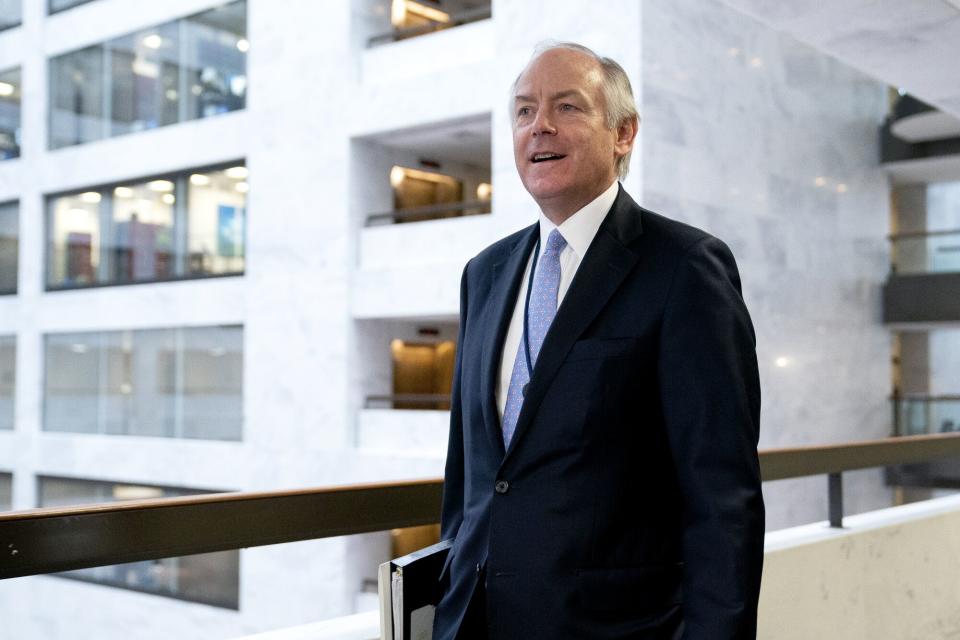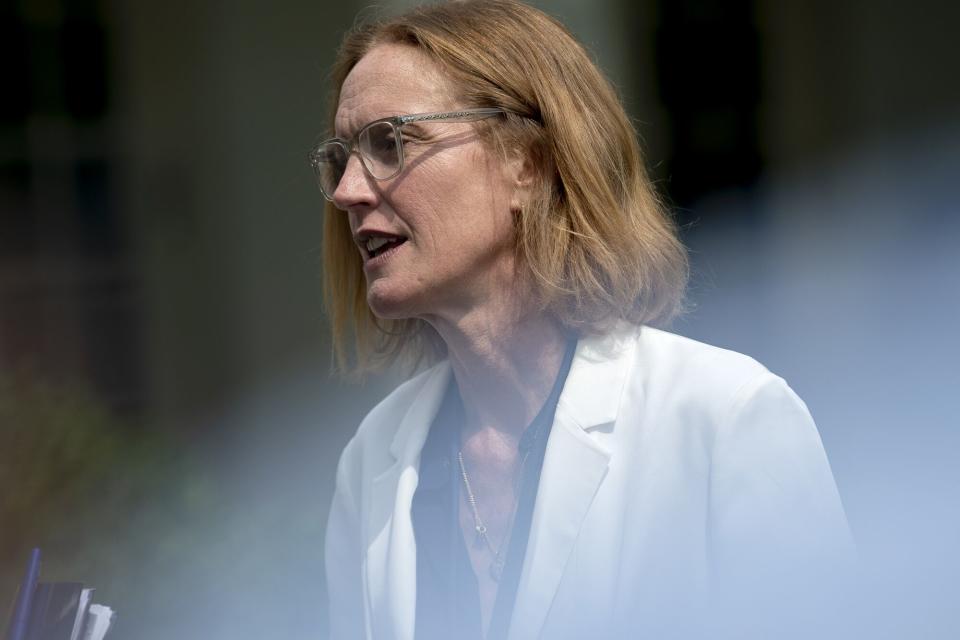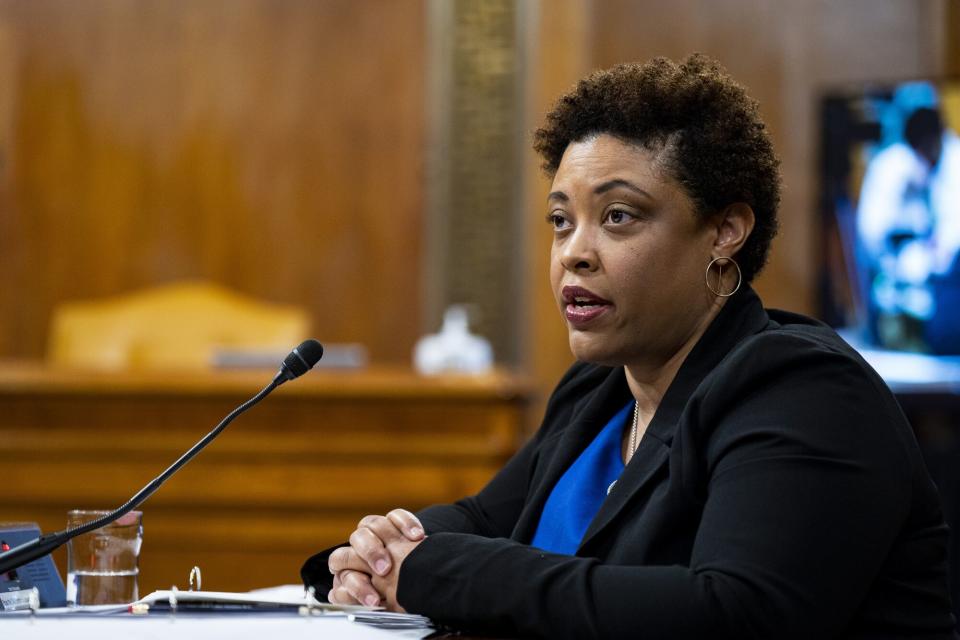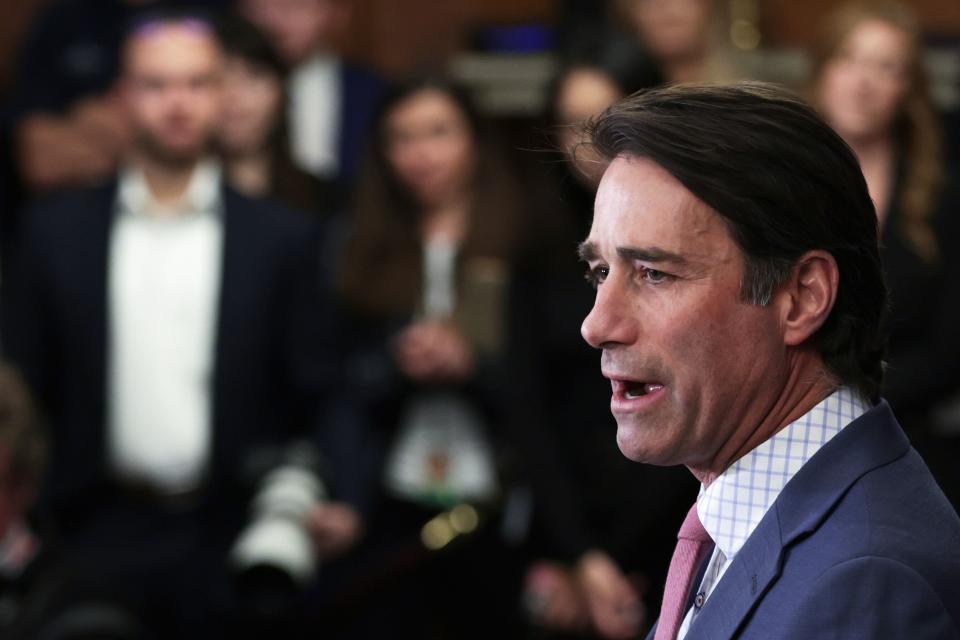The Five Washington Dealmakers Trying to Avoid a US Default
- Oops!Something went wrong.Please try again later.
- Oops!Something went wrong.Please try again later.
- Oops!Something went wrong.Please try again later.
(Bloomberg) -- Five Washington insiders — a few trusted aides, a Cabinet-level officer and a Republican congressman — are now tasked with cutting a deal to avert a US debt default that otherwise could come as soon as June 1.
Most Read from Bloomberg
Here’s How Much Wealth You Need to Join the Richest 1% Globally
Singapore Air Hands Staff Eight Months’ Salary Bonus After Record Results
Mercedes Sets Out to Make Sexy Vans With Yacht-Like Interiors
All five have serious deal-making chops. None come from the extremes of their party. And most are well acquainted. Republican negotiator Garret Graves and White House representative Shalanda Young even share a personal Louisiana connection: he represents her hometown.
They got to work Tuesday evening, hours after President Joe Biden and Speaker Kevin McCarthy deputized them. The speaker offered a vote of confidence: “We have the right people in the room.”
Here’s what you need to know about the negotiators:
Few in the White House are as close to Biden as adviser Steve Ricchetti, the chairman of Biden’s 2020 presidential campaign and chief of staff to Biden when he was vice president. He brings decades of experience in sensitive negotiations: He also was a deputy chief of staff to former President Bill Clinton and once was Clinton’s top liaison to the Senate.
Ricchetti was a key player in brokering Biden’s signature infrastructure bill, crafting a critical outline for a deal with a cluster of Senate Republicans and Democrats that became the spine for a package that unleashed $550 billion in new spending on roads, bridges and other public works. But when it came to the ambitious economic package Biden hoped would follow, efforts by Ricchetti and other top White House officials couldn’t bring along moderate holdout Joe Manchin. It fell to Democratic leader Chuck Schumer to negotiate a scaled-back measure with the West Virginia senator.
Ricchetti has strained relations with some liberal Democrats including House Progressive Caucus Chair Pramila Jayapal, who consider him too focused on Democrats’ moderate wing. That poses a challenge if a debt deal needs broad Democratic support to clear either the House or Senate.
Shalanda Young
White House Budget Director Shalanda Young has a long track record forging deals on federal spending in her current job and previously as a long-time staffer for the House Appropriations Committee, which handles funding the government. Her deep knowledge of the arcane details of appropriations is a critical advantage in talks centered on cutting government spending.
Young, 45, knows the real-world consequences of spending cuts and where the fault lines lie among congressional Democrats. Her former boss, Representative Nita Lowey of New York, calls her a “realist.” And she has won the trust of many Republicans: Despite Washington’s partisan warfare, her confirmation won 61 votes in Senate.
Young is particularly proud of the catch-all spending package that passed Congress in December, raising baseline appropriations by $130 billion, a significant victory for Biden. She has a track record of creative solutions, such as shifting spending into new accounts to smooth over compromises.
Louisa Terrell
A former aide to Biden when he served in the US Senate, Louisa Terrell now leads the team of White House lobbyists who serve as Biden’s eyes and ears on Capitol Hill. Terrell helped steer Biden’s bipartisan winning streak on Capitol Hill in 2022, which included the infrastructure legislation, a major financial boost for the domestic semiconductor chip industry, a broad gun-safety measure and a same-sex marriage bill.
Terrell, 53, has been working since last year with Ricchetti and Young to lay the groundwork for legislation to speed up energy permitting. That could become a cornerstone of any debt deal since it’s also a top GOP priority. Her work has included making the case to wary progressives, whose support on a compromise could be critical.
Garret Graves
Louisiana Congressman Garret Graves emerged from McCarthy’s epic January battle for the speakership as one of the Republican leader’s most trusted lieutenants. He helped broker the agreements that put McCarthy over the top. And he was the key architect of the House debt-limit plan that pulled together the party’s warring factions behind a single package of spending cuts.
Graves, 51, describes himself as a pragmatist. The debt-limit plan he helped produce won over moderate Republicans unwilling to cut Social Security and Medicare. At the same time, he secured the backing of hard-liners who started out demanding $16 trillion in cuts to balance the budget in ten years. That would have required politically explosive cuts to benefits for the elderly.
Graves has a deep sense of Congress, having worked earlier in his career as an aide to several centrist Louisiana lawmakers. Prior to his election, he honed his negotiating skills working on Governor Bobby Jindal’s staff, handling talks with BP over compensation for the Deepwater Horizon oil spill
In the current talks, Graves has put a priority on energy permitting changes, which would benefit fossil fuel companies in his state.
Dan Meyer
Dan Meyer was there for the Revolution — the so-called Republican Revolution when Newt Gingrich led the GOP back into control of the House in the 1994 election after decades in the minority. He is the only person to ever serve as chief of staff to two House speakers: Gingrich in the mid-1990s and now McCarthy. In between, Meyer was the top congressional liaison for President George W. Bush during the battles over financial crisis legislation in 2008. Later, he worked Congress for major insurers and drug companies as president of the powerhouse Washington lobbying firm Duberstein Group.
Working for Gingrich, Meyer was there at the Capitol when Republicans persuaded President Bill Clinton to add tougher work requirements to traditional welfare programs. It’s no accident that McCarthy and Meyer are pushing to expand work requirements for welfare, food stamps and Medicaid in the current talks. Meyer announced he is retiring from his congressional job in June, so the debt talks will be the capstone of a storied Washington career.
Most Read from Bloomberg Businessweek
Sweetgreen Tests Robots to Make Faster, More Efficient Sad Desk Salads
Recession Calls Keep Getting Pushed Back, Giving Soft Landing Believers Hope
©2023 Bloomberg L.P.






